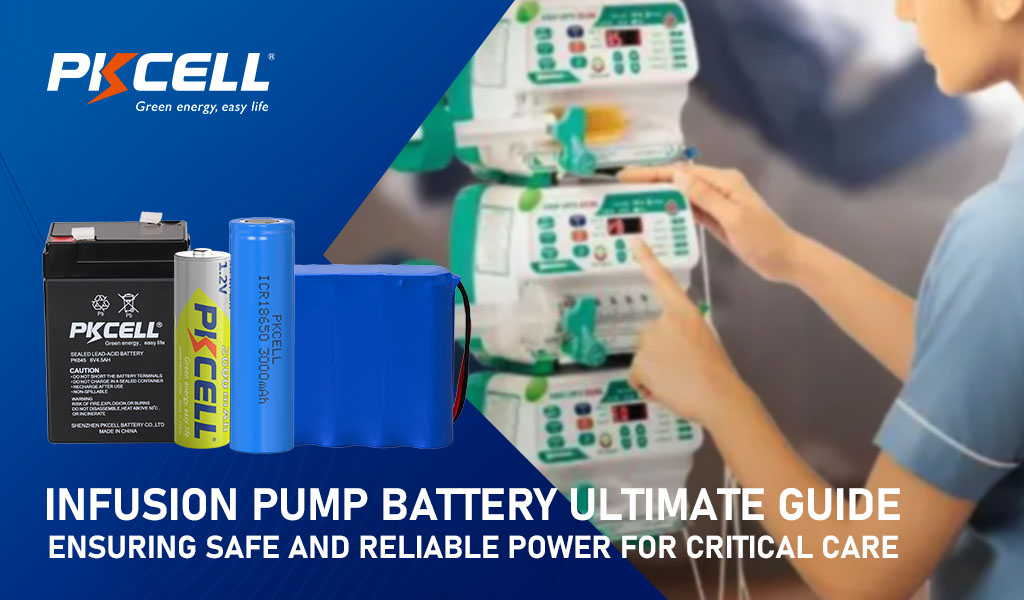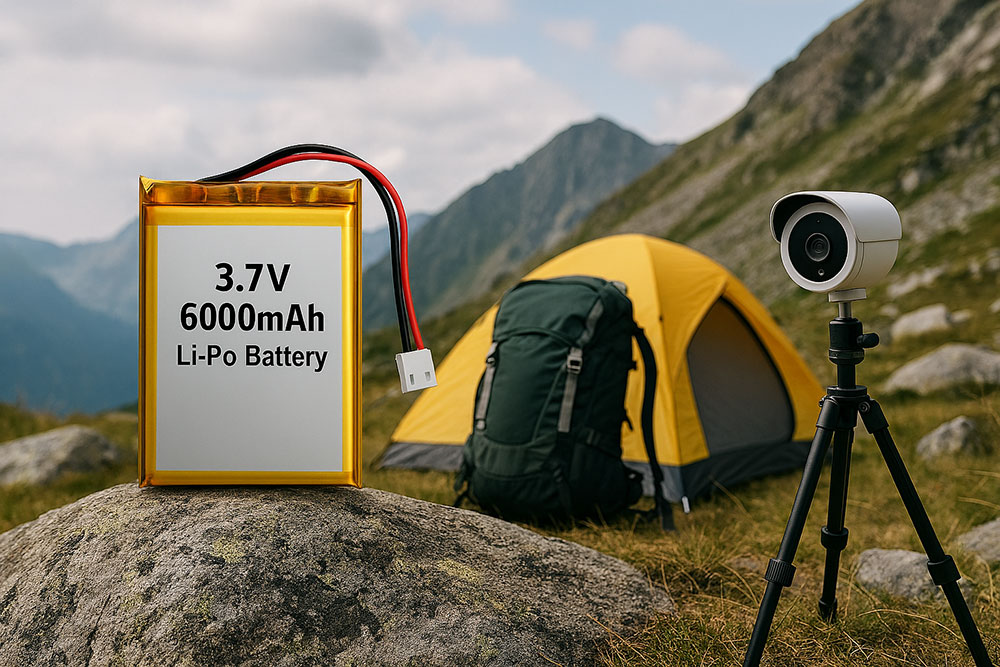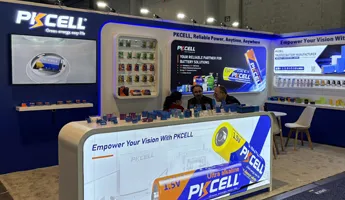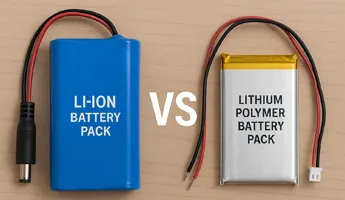
Introduction
Among the countless medical devices that support daily care, the infusion pump stands out as one of the most critical. These pumps are used to deliver medication, nutrients, and fluids to patients with precision and consistency. Yet behind every infusion pump lies a small but powerful component that determines its performance—the infusion pump battery.
When a patient depends on uninterrupted therapy, the battery can not fail. For biomedical engineers, procurement managers, and OEMs, choosing the right battery supplier is not just a technical decision—it is a matter of life and trust.
Why Infusion Pump Batteries Matter in Healthcare
Infusion pumps are designed to work around the clock. While many operate on AC power, batteries ensure continuous function during transport, emergency use, or sudden power outages. Without a reliable rechargeable infusion pump battery, a critical infusion could be interrupted.
A weak or uncertified battery does not only risk downtime. It creates potential safety hazards, increases the cost of maintenance, and places additional stress on clinical staff. Hospitals can not afford unexpected device failures during treatment. That is why infusion pump batteries are often subject to stricter safety and compliance requirements than many other types of medical device batteries.
Types of Infusion Pump Batteries and Their Applications
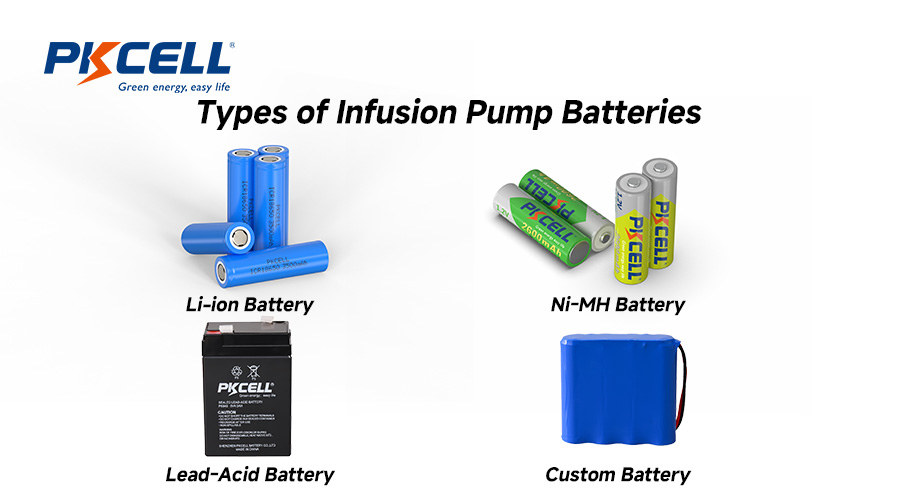
Rechargeable Lithium-Ion Batteries
Lithium-ion batteries can be found in most modern infusion pumps. They provide higher energy density, lightweight design, and long cycle life. Hospitals appreciate their reliability, while OEM engineers value their flexibility in design. A lithium-based pack can be engineered to deliver consistent voltage output even under demanding conditions. This makes them ideal for portable infusion pumps used in ambulatory settings, home care, or during patient transfers.
Nickel-Metal Hydride (NiMH)
While lithium dominates today’s market, Nickel-Metal Hydride (NiMH) batteries and even some nickel-cadmium (NiCd) units are still in circulation. Many older Baxter and Alaris models rely on NiMH technology. These batteries are robust, tolerate deep discharge cycles well, and remain cost-effective for facilities that continue using legacy pumps. However, they are heavier and less energy-dense compared to lithium options.
Lead Acid Batteries
Lead acid batteries remain widely deployed in legacy infusion pumps. Their enduring popularity comes from their low cost, stable voltage output, and proven reliability. In healthcare facilities, sealed lead acid (SLA) batteries are most common because they are maintenance-free and designed to prevent leakage, an essential feature in medical environments.
Although they are heavier and have shorter lifespans compared to lithium-ion, lead acid batteries are still highly valued in hospitals with large fleets of infusion pumps. They operate effectively in the 6V–12V range, delivering enough power to sustain pumps during patient transfers, mobile treatments, or backup situations when mains power is unavailable.
Custom Battery Packs
OEMs often require more than an off-the-shelf solution. Custom battery packs can be designed to fit unique form factors, integrate smart battery management systems, and comply with medical device regulations. For example, an OEM developing a next-generation portable infusion pump might require a battery that balances long runtime with compact size. In such cases, collaboration with an ISO 13485 battery manufacturer is essential.
Comparison Table
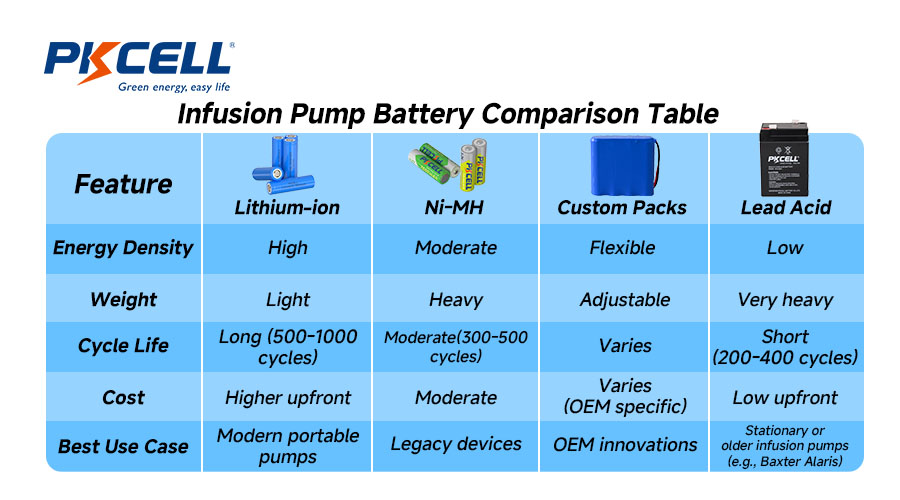
Compatibility with Leading Infusion Pump Models
Baxter Infusion Pump Batteries (e.g., 2M8063)
Baxter remains one of the most widely used infusion pump brands in hospitals. A common requirement is the Baxter 2M8063 battery replacement. The Baxter 2M8063 battery is a 12V sealed lead-acid (SLA) rechargeable battery, usually in the 2.3Ah–3.4Ah range, depending on the pump model. These SLA batteries are chosen for their stable output, reliability, and compatibility with hospital-grade chargers. Some modern replacements also come in lithium-ion versions (lighter weight, longer runtime), but SLA remains the standard in most Baxter devices.
Alaris Infusion Pump Batteries and Other Top Brands
Alaris, another global leader, relies heavily on battery performance for both portable and bedside infusion pumps. Ensuring the right Alaris infusion pump battery is critical because improper replacements can lead to calibration issues or device malfunction. Most Alaris infusion pumps (e.g., Alaris Medley series) rely on 12V sealed lead-acid (SLA) rechargeable batteries similar 至 Baxter, often in the 1.2Ah–2.9Ah range. However, newer models increasingly support NiMH or lithium-ion packs for extended performance and reduced weight.
Importance of Verifying OEM Part Numbers and Technical Specifications
No two infusion pumps are identical. Even within the same brand, different models may use slightly different batteries. Biomedical engineers must always check OEM part numbers, datasheets, and specifications before ordering. Partnering with a knowledgeable medical device battery supplier can prevent costly mistakes and ensure uninterrupted patient care.
Safety, Compliance, and Certifications You Should Look For
ISO 13485 – Medical Device Quality Management
The most critical certification for medical device batteries is ISO 13485. It ensures that the manufacturer follows rigorous processes designed for medical safety and reliability. Hospitals and OEMs alike should insist on this certification when sourcing batteries.
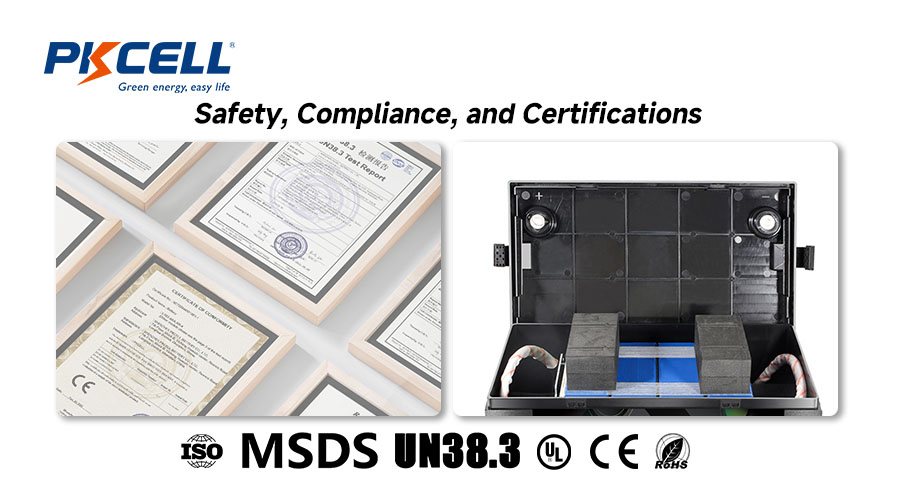
CE, UL, and IEC Standards for Battery Safety
In addition to ISO certification, reputable batteries carry CE, UL, and IEC approvals. These guarantee compliance with international safety and performance standards. A CE-marked battery, for example, indicates it has been tested for safety within the European Union market.
Built-in Protections: Overcharge, Short-Circuit, Thermal Regulation
Beyond certifications, real-world safety comes from intelligent design. Advanced infusion pump batteries include protective circuits against overcharging, short-circuiting, and overheating. These features protect both the patient and the equipment, reducing the risk of sudden failure.
Quote For PKCell Infusion Pump Battery
Key Considerations When Choosing an Infusion Pump Battery
Battery Life and Cycle Performance
Battery life is not just about years of use. It’s about how many cycles the battery can withstand before its capacity significantly drops. For infusion pumps, consistent performance matters more than peak performance.
Run-Time Under Continuous Operation
Hospitals must calculate how long a pump can run on battery power alone. Whether during patient transfer or in case of a power outage, the rechargeable infusion pump battery should support several hours of uninterrupted operation.
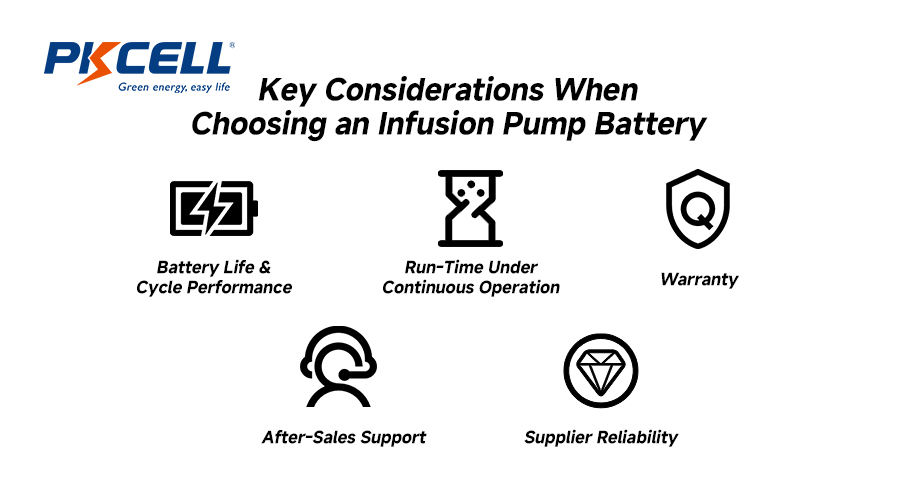
Warranty, After-Sales Support, and Supplier Reliability
A reliable supplier does not simply deliver batteries; they provide ongoing support. Warranties, technical advice, and bulk order logistics all contribute to long-term satisfaction. Hospitals need suppliers who understand medical timelines and the urgency of replacement needs.
Case Studies and Real-World Applications
Extending Infusion Pump Life Cycles in Hospital Settings
One regional hospital faced frequent downtime with its older fleet of infusion pumps. By switching to high-cycle-life lithium-ion batteries, they extended the operational lifespan of the pumps by over three years, saving significantly on replacement costs.
Supporting Service Companies with Reliable Replacement Parts
A third-party service company managing equipment for several clinics needed a steady supply of bulk infusion pump battery replacements. Partnering with a certified supplier allowed them to reduce turnaround times and win long-term service contracts.
Custom-Designed Packs for Next-Gen Infusion Pump Innovation
An OEM developing a portable infusion pump for home-care patients required a compact, lightweight battery with advanced safety features. A reputable supplier collaborated with their engineering team to design a custom pack that passed regulatory testing and integrated seamlessly into the device.
Why Choose PKCell Battery for Your Infusion Pump?
When sourcing batteries in bulk, hospitals and OEMs look for stability, compliance, and cost efficiency. PKCell Battery has built a reputation as a trusted partner for medical device manufacturers. With strict quality control and experience in OEM collaboration, PKCell provides fully customized solutions. For hospitals managing large fleets of infusion pumps, or OEMs designing new devices, PKCell offers not just products, but long-term partnerships.

總結
The infusion pump may be a small device, but its impact on patient care is immense. Choosing the right infusion pump battery—whether for replacement, repair, or OEM design—is a decision that directly affects safety and reliability. Hospitals, service companies, and manufacturers all benefit from working with a supplier that understands not only the technology but also the urgency of healthcare.
FAQs About Infusion Pump Batteries
Q1: How long does an infusion pump battery last?
Most infusion pump batteries last between 2 and 5 years, depending on chemistry, usage, and care. Lithium-ion models usually offer the longest cycle life.
Q2: Can I replace an infusion pump battery myself?
It is not recommended. Infusion pump batteries should be replaced by qualified biomedical engineers or service technicians to ensure safety and compliance.
Q3: What certifications should a medical device battery have?
Look for ISO 13485 certification, CE marking, and UL approvals. These indicate that the battery meets medical safety standards.
Q4: Which infusion pump models are compatible with your batteries?
Our batteries are designed for major brands such as Baxter, Alaris, and others. Always confirm the OEM part number before ordering to guarantee compatibility.
Q5: How can hospitals order infusion pump batteries in bulk?
Hospitals and clinics can contact pkcell sales team for bulk infusion pump battery supply, volume pricing, and long-term procurement agreements.



